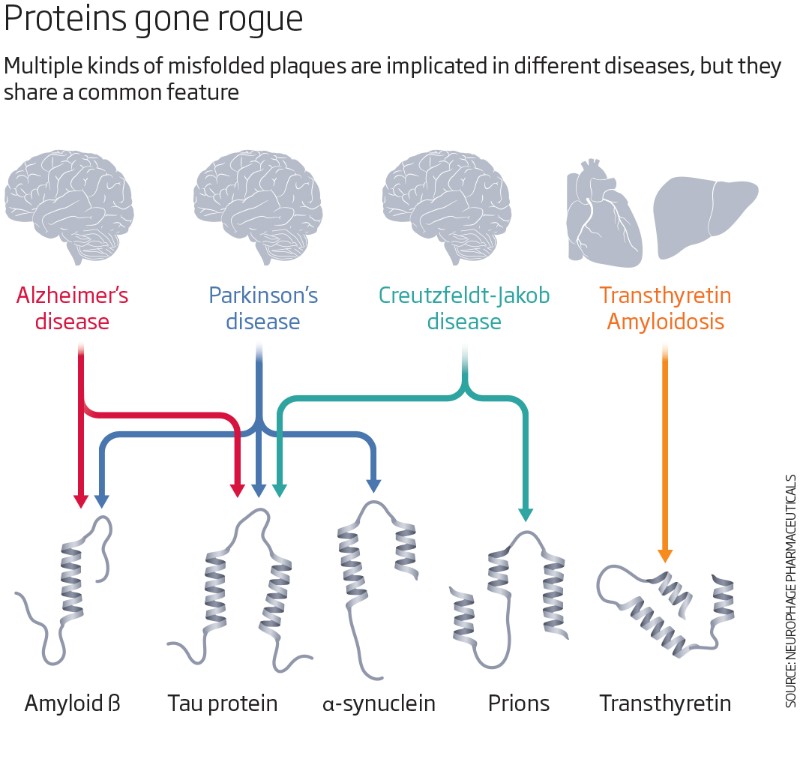At New Scientist, a report on some very hopeful research findings:
A virus found in sewage has spawned a unique drug that targets plaques implicated in a host of brain-crippling diseases, including Alzheimer’s disease, Parkinson’s disease and Creutzfeldt-Jakob disease (CJD).
Results from tests of the drug, announced this week, show that it breaks up plaques in mice affected with Alzheimer’s disease or Parkinson’s disease, and improves the memories and cognitive abilities of the animals.
Other promising results in rats and monkeys mean that the drug developers, NeuroPhage Pharmaceuticals, are poised to apply for permission to start testing it in people, with trials starting perhaps as early as next year.
The drug is the first that seems to target and destroy the multiple types of plaque implicated in human brain disease. Plaques are clumps of misfolded proteins that gradually accumulate into sticky, brain-clogging gunk that kills neurons and robs people of their memories and other mental faculties. Different kinds of misfolded proteins are implicated in different brain diseases, and some can be seen within the same condition.




